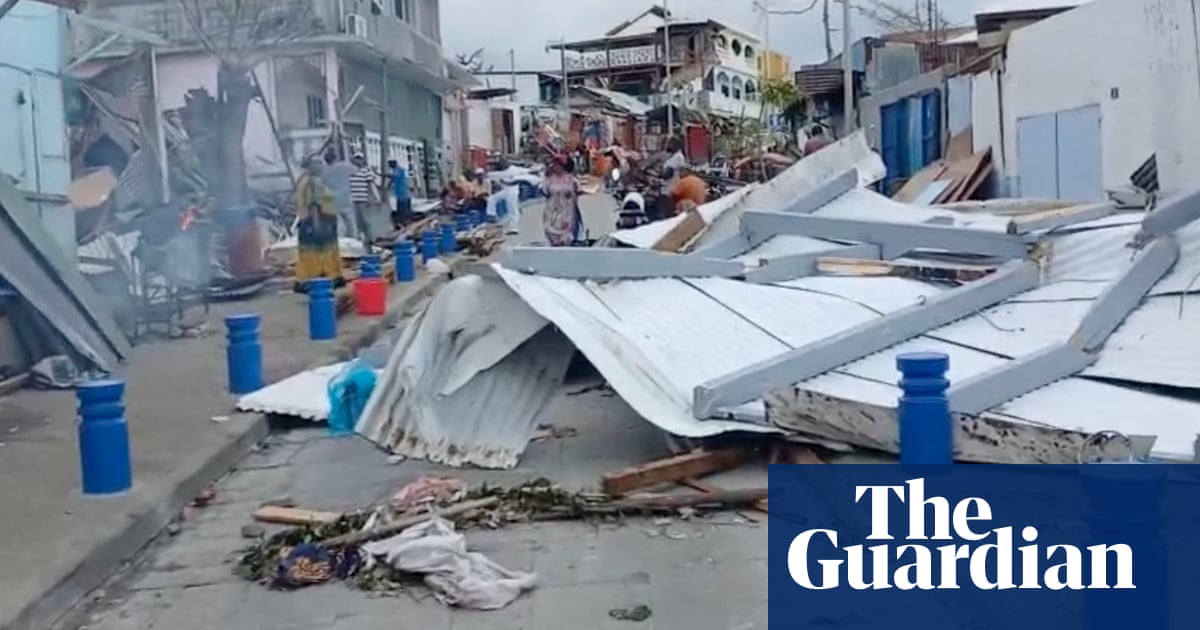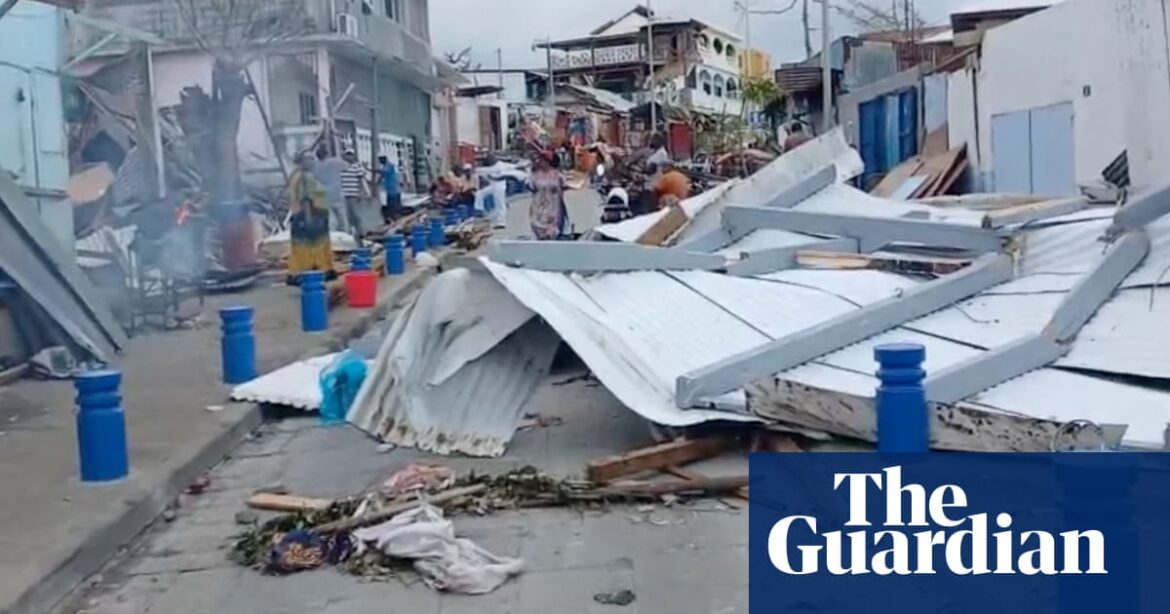
The worst cyclone to hit Mayotte for 90 years has devastated the French Indian Ocean territory’s health services, leaving the hospital severely damaged and health centres out of operation, a minister has said.
“The hospital has suffered major water damage and destruction, notably in the surgical, intensive care, maternity and emergency units,” the French health minister, Geneviève Darrieussecq, told France 2 on Monday, adding that “medical centres were also non-operational”.
Rescuers are racing against time to reach survivors after Cyclone Chido laid waste to the territory’s many shantytowns, with hundreds believed dead. The powerful cyclone caused extensive damage to Mayotte’s airport, cutting off electricity, water and communication links when it battered France’s poorest territory on Saturday.
The Mayotte prefect, François-Xavier Bieuville, told the broadcaster Mayotte la Première that he expected the final death toll to reach “close to a thousand or even several thousand”. He said on Saturday that it was the worst cyclone to hit the islands since 1934.
Videos of the storm shared online showed metal shacks folding like cardboard in the ferocious wind and roofs collapsing inwards into flooded houses.
Ambdilwahedou Soumaila, the mayor of Mayotte’s capital, Mamoudzou, told Agence France-Presse the storm “spared nothing”. “The hospital is hit, the schools are hit. Houses are totally devastated,” he said.
The French president, Emmanuel Macron, will host a crisis meeting on the disaster in Paris at 6pm, his office said.
The country’s interior minister, Bruno Retailleau, arrived in Mayotte on Monday morning, with 160 soldiers and firefighters reinforcing the 110 already deployed.
“Don’t panic,” he told a meeting of officials. “I’m counting on you. When you feel discouraged, when you are tired, remember that we are here,” Retailleau said. “Each and every one of you is committed to this, to this French ideal.”
Chido carried winds of at least 140mph when it reached Mayotte, which lies between Mozambique and Madagascar. At least a third of the territory’s 320,000 residents live in slums, where shacks with sheet-metal roofs were flattened by the storm.
About 100,000 people are undocumented migrants, according to France’s interior ministry. They are mainly from the Comoros, whose closest island is about 43 miles away. That is making it hard to establish how many people have been affected by the cyclone.
Ousseni Balahachi, a former nurse, said some people did not dare venture out to seek assistance, “fearing it would be a trap” designed to remove them from Mayotte. Many had stayed put “until the last minute” when it proved too late to escape the cyclone, she added.
“Everything is destroyed,” Zaya Tombou, who was competing as Miss Mayotte in the Miss France beauty pageant on Sunday, said on her Instagram stories. She had been trying to get in touch with her relatives all day as the pageant’s final unfolded and finally got a message from her father on Sunday night: “I lost everything.”
A first aid plane reached Mayotte on Sunday carrying 3 tonnes of medical supplies, blood for transfusions and 17 medical staff, according to authorities in La Réunion, another French Indian Ocean territory, about 870 miles from Mayotte, which is serving as a logistics base for the rescue operation.
Patrice Latron, the prefect of La Réunion, said residents of Mayotte faced “an extremely chaotic situation, immense destruction”. Two military aircraft were expected to follow the initial aid flight, while a navy patrol ship was also due to leave from La Réunion.
The regional Red Cross organisation PIROI pledged its support, while the EU chief, Ursula von der Leyen, said the bloc was “ready to provide support in the days to come”.
The head of the World Health Organization, Tedros Adhanom Ghebreyesus, said the WHO “stands ready to support communities in need of essential healthcare”.
Chido is the latest in a string of storms globally fuelled by the climate crisis, according to experts. The “exceptional” cyclone was super-charged by particularly warm Indian Ocean waters, meteorologist Francois Gourand, of the Météo-France weather service, told AFP.
The cyclone blasted across the Indian Ocean and made landfall in Mozambique on Sunday, where officials said it had resulted in three deaths.
“Many homes, schools and health facilities have been partially or completely destroyed,” the UN children’s agency, Unicef, said.
The UN humanitarian agency, OCHA, said 1.7 million people were in danger from the cyclone, and that the remnants of it could still cause “significant rainfall” on Malawi on Monday. Zimbabwe and Zambia could also expect heavy rains, it added.
Malawi’s Department of Climate Change and Meteorological Services advised people not to go outside in heavy wind and rain, adding that it expected the cyclone to have left the country by Monday afternoon.
The storm comes after southern Africa suffered its worst drought in at least a century earlier this year, with 27 million people struggling to feed themselves until the next harvest due in April.
Agence France-Presse and Reuters contributed to this report
Source: theguardian.com



